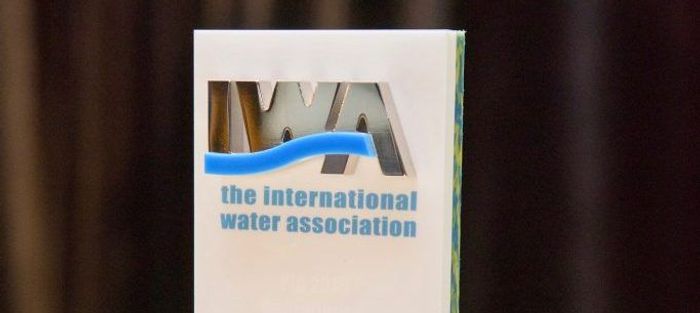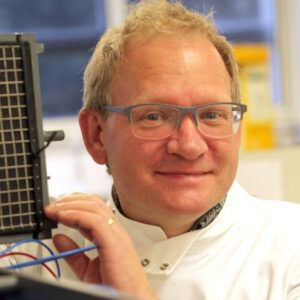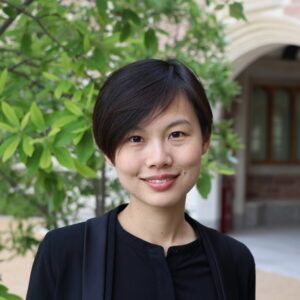Winners of ISME/IWA BioCluster Award 2020 announced

Published on Oct 8, 2020
The International Water Association (IWA), in partnership with the International Society for Microbial Ecology (ISME), is pleased to announce the winners of the ISME/IWA BioCluster Award 2020:
- The Grand Prize has been awarded to Prof. Thomas Curtis (University of Newcastle, UK)
- The Rising Star Award has been awarded to Dr. Fangqiong Ling (Washington University in St. Louis, USA)
The aim of the award is to recognise the importance of interdisciplinary research at the interface of microbial ecology, engineering sciences and water and wastewater treatment. After extensive review, an international panel of experts in the field honoured the two winners with these prestigious awards.
 Prof. Thomas Curtis is Professor of Environmental Engineering at Newcastle University in the United Kingdom. Prof. Ameet Pinto, Assistant Professor at Northeastern University, USA, describes Prof. Curtis as having “the unique ability to take complex theories and big ideas and distill their essence into prose that remains equally accessible to an engineer with little background in microbiology and to a microbiologist with little expertise in engineering.” Prof. Pinto further lauded the 2020 Grand Prize winner’s stellar communication skills, which allow him to “convince the scientific and policy communities of the practical implications and societal impact of his work”. He believes that Prof. Curtis is driven by “the desire to rationally engineer microbiology to better our lives and our planet”.
Prof. Thomas Curtis is Professor of Environmental Engineering at Newcastle University in the United Kingdom. Prof. Ameet Pinto, Assistant Professor at Northeastern University, USA, describes Prof. Curtis as having “the unique ability to take complex theories and big ideas and distill their essence into prose that remains equally accessible to an engineer with little background in microbiology and to a microbiologist with little expertise in engineering.” Prof. Pinto further lauded the 2020 Grand Prize winner’s stellar communication skills, which allow him to “convince the scientific and policy communities of the practical implications and societal impact of his work”. He believes that Prof. Curtis is driven by “the desire to rationally engineer microbiology to better our lives and our planet”.
 Dr. Fangqiong Ling has won the 2020 Rising Star Award, which is presented to a promising young scientist in the field. In her lab at Washington University in St. Louis, Dr. Ling works with macro-ecologists, mathematicians, and epidemiologists to explore the microbial ecology of aquatic systems at the interface of manmade and natural environments. Dr. Ling works with the aid of metagenomics and machine learning, translating the new insights into tools when suitable. Her recent work has focused on developing a data-driven model to estimate human population size from microbial species abundance distributions in urban wastewater. “I feel deeply honoured to receive this recognition from my fellow academics”, she notes. “In this special moment, I am thinking about my mentors, collaborators, and students who have inspired me and helped me grow professionally.” Speaking of her future ambitions, Dr. Ling remarks, “I aim to integrate the rich data in water and wastewater metagenomes with what we know about other microbiomes and to utilize machine learning to develop microbiome biosensors.”
Dr. Fangqiong Ling has won the 2020 Rising Star Award, which is presented to a promising young scientist in the field. In her lab at Washington University in St. Louis, Dr. Ling works with macro-ecologists, mathematicians, and epidemiologists to explore the microbial ecology of aquatic systems at the interface of manmade and natural environments. Dr. Ling works with the aid of metagenomics and machine learning, translating the new insights into tools when suitable. Her recent work has focused on developing a data-driven model to estimate human population size from microbial species abundance distributions in urban wastewater. “I feel deeply honoured to receive this recognition from my fellow academics”, she notes. “In this special moment, I am thinking about my mentors, collaborators, and students who have inspired me and helped me grow professionally.” Speaking of her future ambitions, Dr. Ling remarks, “I aim to integrate the rich data in water and wastewater metagenomes with what we know about other microbiomes and to utilize machine learning to develop microbiome biosensors.”
Prof. Colin Murrell, President of ISME, was a key part of the judging panel for this year’s awards. “There were excellent candidates for the ISME-IWA BioCluster Grand Prize Award, which made the job of the selection panel very tough”, he notes. Ultimately, the judges were “delighted” to award the main prize to Prof. Thomas Curtis. Speaking of the Rising Star Award, Prof. Murrell shared that, while there were “a number of excellent young scientists nominated”, the evaluation committee was “pleased to award this prize to Dr. Fangqiong Ling, who was an outstanding candidate”.
The IWA/ISME BioCluster will honour the awardees in two special ceremonies, to be held at the IWA World Water Congress & Exhibition in Copenhagen, Denmark in September 2022, and at the ISME18 Congress: 18th International Symposium on Microbial Ecology in Cape Town, South Africa on 21-26 August 2022.
About the Award
In order to recognize the importance and impact of interdisciplinary research at the interface of microbial ecology, water/wastewater treatment and engineering sciences, the IWA/ISME BioCluster created the ISME/IWA BioCluster Award.
The award is a collaboration between the International Society for Microbial Ecology (ISME) and the International Water Association (IWA). The prestigious prizes reward internationally-recognized research of unusual merit in this field.
This award is biennially presented. All IWA or ISME members are entitled to nominate candidates. Candidates can be senior leaders or young scientists considered to be rising stars in this field in the field. Nominated candidates must be members of either IWA or ISME (or both). |
